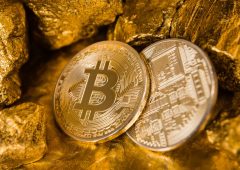Hong Kong Moves to Attract Crypto Capital with Tax Exemptions for Big Investors
28.11.2024 13:30 1 min. read Alexander Zdravkov
Hong Kong is introducing tax exemptions on crypto investments for high-net-worth individuals, hedge funds, and private equity firms to attract global capital and enhance its position as a cryptocurrency hub in Asia.
This move comes as the U.S., under Donald Trump, considers similar policies to boost the crypto industry.
The Hong Kong government aims to create a favorable environment for investors, with a focus on family offices, which increasingly allocate assets to digital currencies. These changes are part of broader efforts to make Hong Kong a global financial and crypto center, with Patrick Yip of Deloitte China highlighting the clarity these measures will provide for investors.
As other countries like Italy also adjust their crypto tax rates, Hong Kong is expanding exemptions to include private credit and carbon credits, while holding a consultation to further refine the proposal. The city is positioning itself as a leading offshore financial hub, especially as wealthy Chinese investors move their assets abroad due to stricter domestic policies.
With firms like Circle considering expansion in Hong Kong, the city is aiming to compete with established hubs like Singapore and Luxembourg. Experts believe these tax reforms will make Hong Kong a top destination for crypto funds, potentially surpassing Switzerland as a global wealth management leader.
-
1
U.S. State of Connecticut Blocks Crypto from Public Sector Operations
12.06.2025 16:00 1 min. read -
2
Federal Reserve Clears Path for Banks to Enter Crypto Market
24.06.2025 8:00 2 min. read -
3
Vietnam Charts a Clear Course for Digital Assets With New 2026 Law
16.06.2025 18:00 1 min. read -
4
GENIUS Act Clears Senate, Setting Stage for First U.S. Crypto Law
18.06.2025 12:00 1 min. read -
5
Coinbase and Set Gemini to Expand in EU Under MiCA Rules
17.06.2025 13:00 2 min. read
Crypto Advocates Back Sen. Cynthia Lummis’ Push to Reform Digital Asset Tax Rules
As the U.S. Senate debates a sweeping reconciliation package dubbed the “Big, Beautiful Bill,” crypto industry advocates are rallying behind an amendment introduced by Senator Cynthia Lummis aimed at reforming outdated and burdensome tax rules for digital assets.
Germany’s Largest Banking Group Sparkassen to Offer Crypto Trading by 2026
In a major shift from its earlier stance, Sparkassen-Finanzgruppe — Germany’s largest banking group — is preparing to introduce cryptocurrency trading services for retail clients by the summer of 2026, according to a report from Bloomberg.
Kazakhstan to Establish State Crypto-Reserve Under Central Bank Oversight
Kazakhstan is taking a major step toward integrating digital assets into its national financial strategy, with plans to establish a state-managed crypto-reserve.
Europe’s Largest Euro-Denominated Spot Crypto Exchange Secures License Under MiCA
Bitvavo, Europe’s largest euro-denominated spot crypto exchange, has officially received a MiCA license from the Dutch Authority for the Financial Markets (AFM), allowing the firm to operate across all 27 European Union member states.
-
1
U.S. State of Connecticut Blocks Crypto from Public Sector Operations
12.06.2025 16:00 1 min. read -
2
Federal Reserve Clears Path for Banks to Enter Crypto Market
24.06.2025 8:00 2 min. read -
3
Vietnam Charts a Clear Course for Digital Assets With New 2026 Law
16.06.2025 18:00 1 min. read -
4
GENIUS Act Clears Senate, Setting Stage for First U.S. Crypto Law
18.06.2025 12:00 1 min. read -
5
Coinbase and Set Gemini to Expand in EU Under MiCA Rules
17.06.2025 13:00 2 min. read


